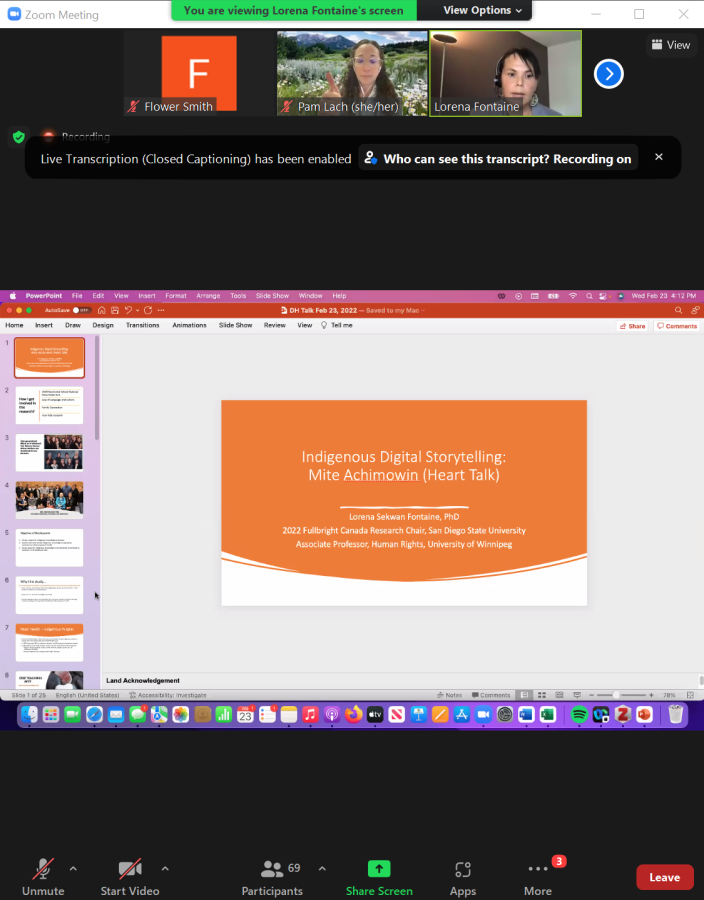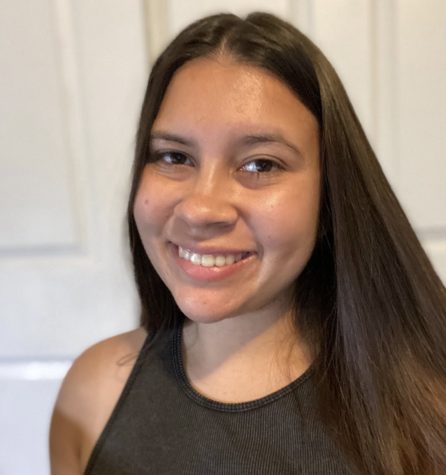Digital storytelling is a way to explain concepts, reflect upon personal experiences and bring narratives to life.
Dr. Lorena Sekwan Fontaine presented a community-based study in a virtual event co-sponsored by San Diego State’s Department of American Indian Studies on Feb. 23, discussing the importance of digital storytelling and the power that it holds.
The main topic of the night focused on the heart health of Indigenous peoples in Manitoba and the historical trauma along with the current discrimination and racism that is often silenced.
“Mite achimowin is loosely translated in English as ‘heart talk,’ but conceptually, mite achimowin encompasses complex cultural teachings integral to caring for the mind, the physical body, the spirit as well as to living healthy lives,” Fontaine said during the presentation.
Fontaine is a distinguished professor at the University of Winnipeg and an SDSU Fulbright Scholar in American Indian Studies. She is also a lawyer and researcher emphasizing the legacy of residential schools and Indigenous language rights in Canada.
When discussing heart health in Indigenous communities, Fontaine said it was important to hear from Indigenous women within the community who knew about heart health based on being heart health patients themselves or from caring for others who have had heart problems.
In her research, Fontaine had three objectives: create a space for Indigenous knowledge to emerge, explore culturally-rooted Indigenous knowledge and oppressive mechanisms influencing heart health, and create a space for Indigenous knowledge to be heard and understood by students in the healthcare field.
The research project’s objective was to honor the traditions of oral history and storytelling as a means to elevate Indigenous knowledge and wellness practices amongst Indigenous women and heart health. Other objectives included initiating dialogue between Euro-western medical students to extend understanding of heart health amongst Indigenous people.
There was an emphasis on the Cree teachings of mite. Throughout the presentation, it was acknowledged that everyone is gifted a heart and the health of this heart requires an understanding of how to take care of one’s psychological, physical, emotional and spiritual wellbeing, according to Fontaine’s research.
“The reason why we engaged in this research was primarily because research done in the medical field has been done primarily on Indigenous peoples without often consent, but also without our knowledge in the research engaged in,” Fontaine said.
Two of the digital stories showed shared knowledge from women in the Indigenous communities. They were first-person narratives of their experiences with heart health along with family relationships and lifestyle habits.
During the presentation, questions and comments from the audience were encouraged. SDSU student John Mollet spoke up and expressed how his public history education has made him think about the criticism of oral history because of academic value. Mollet’s further question involved how to persevere through the criticism of oral teachings being used as historical evidence.
“The courts in Canada have recognized oral evidence as valid testimony, so that is a positive direction for looking at our oral history as a valid way of doing research,” Fontaine said.
Fontaine communicated how this is a positive step in using digital storytelling as a way to decolonize further research in this area.
“It really speaks to the power of storytelling, even when someone doesn’t want to share their story beyond their particular people. It’s important that we honor those choices just because it’s digital and can be shared easily doesn’t mean it needs to be,” Pam Lach, digital humanities librarian at SDSU, added to the conversation.
“We’re still on a journey about talking about these experiences, but we still have a long way to go,” Fontaine said.









